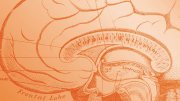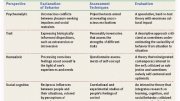
Biological psychology, or biopsychology, is a field in which the mind-body connection is explored through scientific research and clinical practice. Researchers in this field study the biological basis of thoughts, emotions and behaviors. Read on to learn more about this subfield of psychology, educational options and potential careers. Schools offering .
Defining Biological Psychology
Alternative names of biopsychology, such as behavioral neuroscience and physiological biology, indicate a preliminary definition. Researchers in this field examine not only how biology - particularly the nervous system - affects behavior, but also how behaviors affect the brain. They conduct experiments, often using lab animals as a model for humans, to explore the interactions between the environment, behavior and physiology.
Physiology is the study of how all body processes function, including the electrical and chemical processes necessary for nervous system communication. When you study biopsychology, you examine memory, perception, cognition and behavioral disorders through the lens of physiology, neural biochemistry, biophysics and anatomy. Within the scope of this broad field, you may choose to focus on the biological underpinnings of human or animal behavior.
Research Areas and Methods
Biopsychology research employs sophisticated scientific methods and may focus on sensory perception, learning, language, psychiatric disorders, addiction, stress, sleep and memory disorders, among other areas. You may study the nervous system using techniques that include brain imaging, brain stimulation, neuropharmacology, genetic engineering and electrophysiological recording. As a prospective student, you may seek academic programs with faculty members conducting research in your areas of interest and collaborate in experiments to address issues including:
- The biological basis of autism
- The effects of hormones on motivation
- The relationship between stress and mental illness
- The functions of sleep
Educational Paths
Programs in biopsychology are available at the bachelor's, master's and doctoral degree levels. Majoring in biopsychology, you study animal behavior, learning, personality theory, physiological psychology, genetics and biochemistry. Statistics, research methods and laboratory courses in experimental psychology are also typically part of undergraduate programs. When you graduate, you may pursue a master's degree or doctoral program in fields including clinical psychology and behavioral neuroscience.
Most graduate biopsychology programs are Ph.D. programs that feature varied areas of specialization. As a graduate student, your advanced coursework may include developmental biopsychology, cognition and neuroscience. Training in a variety of research methods and techniques prepares you for opportunities to participate in experiments at your university's research institutes.
Source: learn.org
You might also like:

















Specialized branch of psychology that studies the relationship between behavior and bodily processes and systems